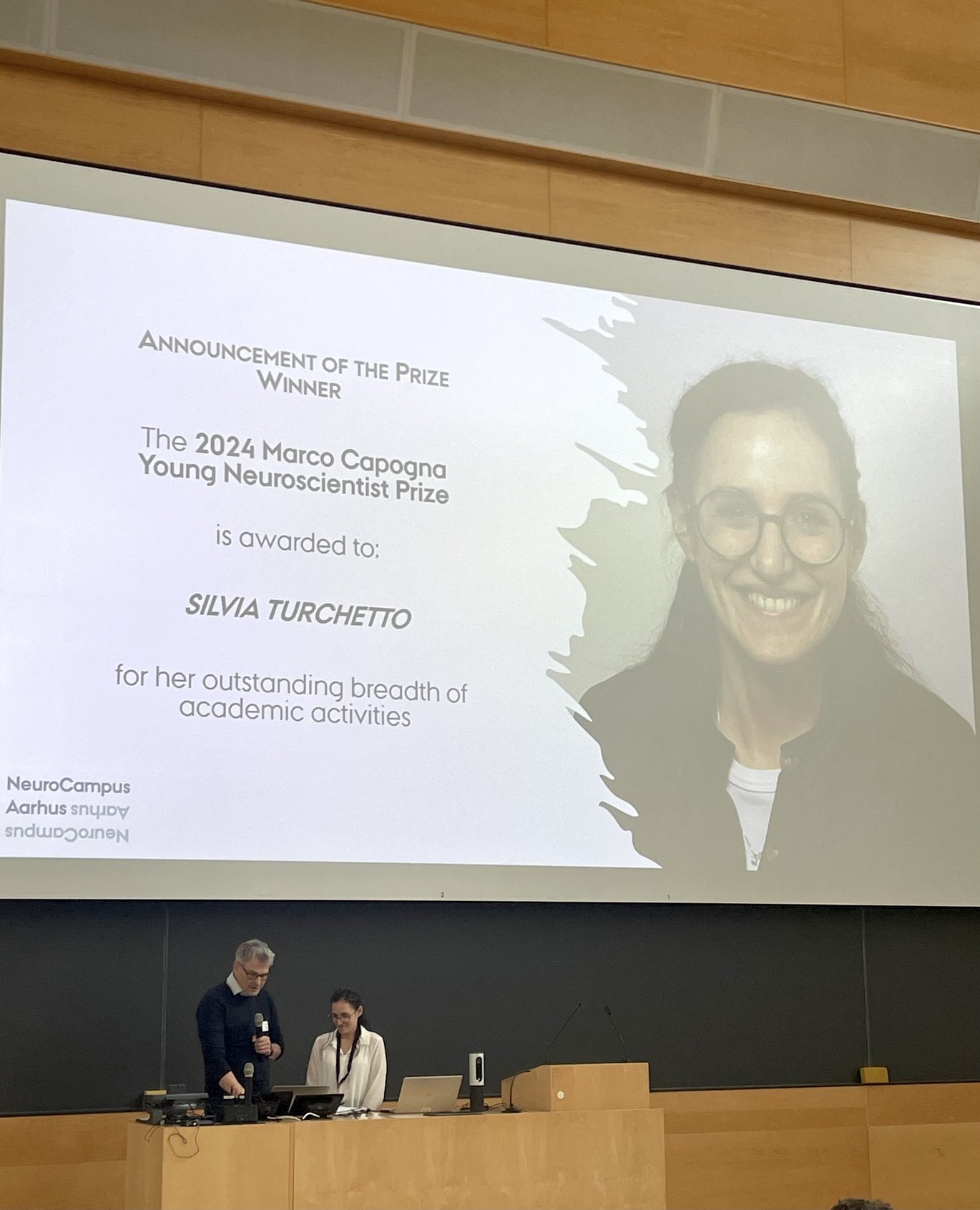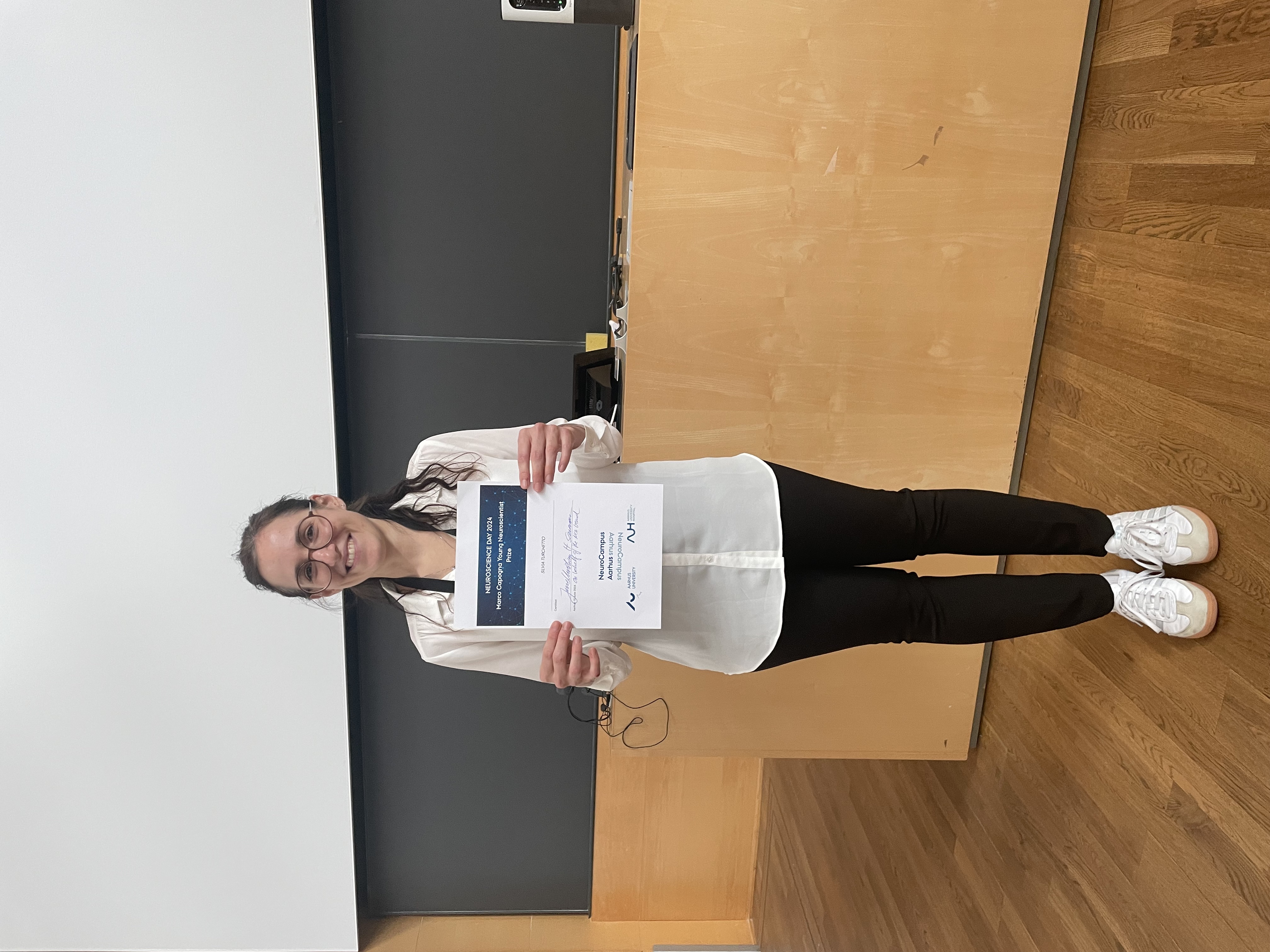DANDRITE postdoc awarded the Marco Capogna Prize
As part of the annual Neuroscience Day, the Neurocampus-network awards the Marco Capogna Prize to a young neuroscience researcher at AU or AUH who have demonstrated excellence within his/her field of research. This year the prize went to DANDRITE Postdoc Silvia Turchetto from Chao Sun Lab.


Silvia Turchetto is a strong candidate with an extensive international experience from Belgium and Karolinska, several first-author publications in prestigious journals including Nature Communications, as well as co-authorships in journals such as Science Advances.
This was one of the motivations for awarding Postdoc Silvia Turchetto the Marco Capogna Prize at this years Neuroscience Day 2024 held on Monday 10 June.
Silvia Turchetto is a postdoc in Chao Sun Lab at DANDRITE and her field of research is combining her clinical and basic neuroscience training to pursue a fundamental question in schizophrenia using patient-derived brain biopsies.
With the prize comes an amount of DKK 7.500.
About the prize
The Marco Capogna Young Neuroscientist Prize is awarded to a young scientist at Aarhus University or Aarhus University Hospital who has received the PhD degree within the last 5 years (excl. maternity/paternity leave periods). The prize aims to recognize a young neuroscience researcher who have demonstrated excellence within his/her field of research. The nominee will be evaluated on their level of contribution to the interdisciplinarity between basic and clinical science through e.g. his/her research, dissemination activities, or organizational work.
The prize is instituted in memory of the late Professor Marco Capogna (1958-2022) who started in 2016 as a professor at the Department of Biomedicine. Marco Capogna was a great collaborative catalyst in the neuroscience community. A major interest of his was understanding circuitry that guides emotionally dependent behaviors with a particular focus on GABAergic neurons in the hippocampus and amygdala. In this work, he also continued collaborations with many important European neuroscience centers, and he had a very strong, positive influence on our international neuroscience network. In addition to Marco Capogna’s superior scientific qualifications, he was also highly dedicated to the education and training of undergraduate and graduate students in neuroscience by developing and coordinating neuroscience courses of the highest quality for medical and PhD students. Furthermore, Marco mentored many successful junior scientists. He respected them as scientists and cared for them as individuals - they were much more to him than colleagues. In honor of Marco Capogna’s dedication to neuroscience and the education of young neuroscientists, the Neurocampus Board and the Faculty of Health has decided to institute this prize.
